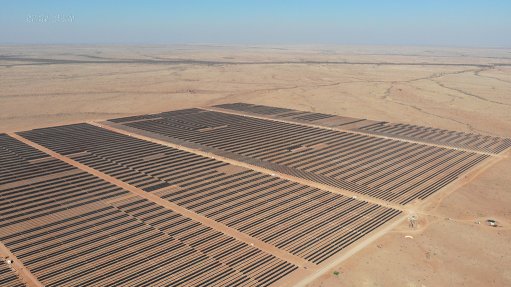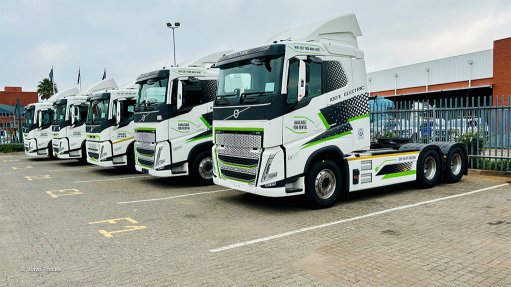Long-term benefits or deferred externalities?
I am writing this column having just returned from a concert at which one of the most prominent bands of the late 1970s and early 1980s, Madness, was the headline act. It is with some irony that I contemplate the news of a mere 24 hours before.
The city of Durban, my much beloved hometown, was announced as the successful bidder to host the 2022 Commonwealth Games, but then it was a one-horse race since the withdrawal in February of Edmonton, owing to oil-price- related concerns and the need to focus on social spending priorities. But a win is a win, right? But is it really?
What do you know of the Commonwealth Games (formerly the British Empire Games, the British Empire Commonwealth Games and the British Commonwealth of Nations Games)? The Commonwealth of Nations, or simply the Commonwealth, is an organisation of 53 member States that were mostly territories of the former British Empire. Instead of ‘territories’, you could read ‘colonies’. But that might be construed as insensitive or politically incorrect. A rose by a different name? Although there are 53 members of the Commonwealth of Nations, 71 teams participate in the Commonwealth Games, as a number of dependent territories compete under their own flag. South Africa competed in the Games from 1911 to 1958 and has been competing since 1994.
And what do you know of Edmonton? Even heard of it before? Well, it is a major centre for the oil and gas industry, owing to its massive oil, gas, and oil sands reserves. Edmonton is the capital of Canada’s Alberta province and has a population of 877 926. It is Alberta’s second- largest city and Canada’s fifth-largest. (Canada’s four largest cities are Toronto, Montreal, Calgary and Ottawa, while South Africa’s four largest urban centres are Cape Town, Durban, Johannesburg and Soweto.)
So, why is South Africa so eager to host the Commonwealth Games – and in Durban, of all places? Is it not quite ironic that the Games will be held in a city named after Lieutenant-General Sir Benjamin D’Urban, a British general and colonial administrator, who is best known for his frontier policy when he was the governor of the Cape colony, present-day South Africa? On June 23,1835, the name of the principal port was changed from Port Natal to Durban. Notwithstanding the street-name changes, the city of Durban remains within the eThekwini metropolitan municipality.
The http://www.durban-2022.com/home website states: “The opportunity to host the 2022 Commonwealth Games would be a catalyst and a game changer in the lives of many ordinary people. How the 2022 Commonwealth Games positively affect South Africans: (i) promoting sport among the youth towards nation building and uplifting individual lives and, therefore, transforming communities; (ii) promoting social cohesion as envisaged in the National Development Plan by getting our people to share social spaces; (iii) promoting brand South Africa for economic development purposes impacting on industries such as tourism; and (iv) accelerating the rate of development and the execution of intended development plans in the country. In total, international visitors are expected to contribute up to R12-billion in direct expenditure. “The 2022 Commonwealth Games are expected to deliver up to R20-billion in output to the economy, translating into an additional R11-billion in gross domestic product growth.”
So, what does South Africa hope to achieve by hosting the 2022 Commonwealth Games? Why does it want to host it? In answering these questions, the usual political rhetoric would, no doubt, be offered, highlighting all the possible benefits, such as increased economic growth, which would lead to job creation – most notably in the tourism and construction sectors – and that it would spur investment in infrastructure, which would, in turn, lead to long-term economic benefits and returns. Is it not interesting that, after the events have concluded, the real economic benefits derived and returns received from hosting these events are never made known?
However, when calculating the cost of hosting events like the Commonwealth Games, a vital element is often ignored – it is the external cost, also known as an externality. ‘External costs’ imply a market failure in that the true costs are not accounted for and, as a consequence, these costs would have to be accounted for and would be borne by another party – someone has to pay. It could be immediately or, more worringly, over a period – normally a long period. Other than the cost to be borne by ‘another’ – usually the taxpayer – the allocation of funds to the cost of preparing for and hosting the event implies that the funds have been diverted or reallocated. As a consequence, these funds tend to be redirected from economically worthwhile pursuits, such as socioeconomic development, for which the future returns are normally much higher.
In addition, the expenditure does not cease once an event has been hosted and the visitors have left, because the sporting infra- structure will have to be maintained – the external costs. Without belabouring the obvious, how, and by whom would the funds for maintenance be obtained?
In Durban, there is a stadium, the Moses Mabhida stadium, built specifically for the 2010 FIFA World Cup. In his article, ‘Durban’s Moses Mabhida stadium arch of hope or yoke of debt?’, Sam Sole indicates that the stadium cost about R3.1-billion to build. We must bear in mind the facility also has a yearly operating cost. The Mercury, a weekly newspaper published in Durban, reported on February 3, 2014, that “the Moses Mabhida stadium suffered a record R34.6-million loss last year as government’s World Cup subsidy ended, tenants closed their doors and the iconic ‘white elephant’ failed to attract new events”. The article continued: “With depreciation, the deficit for 2012/13 was more than R151-million, compared with the R126-million loss the previous financial year . . . the stadium runs at R2-million loss every month.”
An article written by James Young, which was published in Planet Futbol on February 3 and was entitled ‘South Africa, Brazil World Cup stadia largely remain national burdens’, states: “A mere four years after the competition, most of South Africa’s World Cup venues stand largely empty, used only for poorly attended local soccer games and the occasional concert. It is a long way from being enough to justify the huge construction and running costs of the stadiums.”
As for the benefits to be derived from tourism, much needs to be done, particularly with respect to South Africa’s newly revised visa regulations – but at least there is time for that. The Quartz Africa Weekly Brief states: “South Africa’s tourism business index is at its lowest level since 2011, as visitor numbers decline due to the country’s new visa regulations. “The declining performance of the industry is attributed to South Africa’s new visa regulations that are making it difficult for international visitors – particularly those travelling with minors under the age of 18 – to gain entry into the country.”
Since there is seemingly no sustainable economic benefit to be derived from the hosting of these events, is it fair to conclude that the hosting of Commonwealth 2022 is mere vanity on government’s part?
But it is not only the hosting of the Commonwealth Games that South Africa seeks. Mere hours after the 2022 Commonwealth Games announcement, South Africa indicated that it was ready and prepared to host the 2019 Rugby World Cup should Japan be stripped of the right to host the tournament because of failure to guarantee it can meet its obligations. At least the rugby stadiums are already there, although we do not know the extent to which they would need to be upgraded, particularly in nontraditional rugby areas.
One aspect that I deliberately did not address is that of economic analysis. I am sure that there a few reports that would be all starry eyed on the potential economic benefits and returns that could be achieved. In the words of Richard Thomlinson, Orli Bass and Udesh Pillay, when commenting on the 2010 FIFA World Cup: “Economic projections are invariably erroneous, overestimating the benefits and underestimating the costs . . .”
Comments
Press Office
Announcements
What's On
Subscribe to improve your user experience...
Option 1 (equivalent of R125 a month):
Receive a weekly copy of Creamer Media's Engineering News & Mining Weekly magazine
(print copy for those in South Africa and e-magazine for those outside of South Africa)
Receive daily email newsletters
Access to full search results
Access archive of magazine back copies
Access to Projects in Progress
Access to ONE Research Report of your choice in PDF format
Option 2 (equivalent of R375 a month):
All benefits from Option 1
PLUS
Access to Creamer Media's Research Channel Africa for ALL Research Reports, in PDF format, on various industrial and mining sectors
including Electricity; Water; Energy Transition; Hydrogen; Roads, Rail and Ports; Coal; Gold; Platinum; Battery Metals; etc.
Already a subscriber?
Forgotten your password?
Receive weekly copy of Creamer Media's Engineering News & Mining Weekly magazine (print copy for those in South Africa and e-magazine for those outside of South Africa)
➕
Recieve daily email newsletters
➕
Access to full search results
➕
Access archive of magazine back copies
➕
Access to Projects in Progress
➕
Access to ONE Research Report of your choice in PDF format
RESEARCH CHANNEL AFRICA
R4500 (equivalent of R375 a month)
SUBSCRIBEAll benefits from Option 1
➕
Access to Creamer Media's Research Channel Africa for ALL Research Reports on various industrial and mining sectors, in PDF format, including on:
Electricity
➕
Water
➕
Energy Transition
➕
Hydrogen
➕
Roads, Rail and Ports
➕
Coal
➕
Gold
➕
Platinum
➕
Battery Metals
➕
etc.
Receive all benefits from Option 1 or Option 2 delivered to numerous people at your company
➕
Multiple User names and Passwords for simultaneous log-ins
➕
Intranet integration access to all in your organisation


















